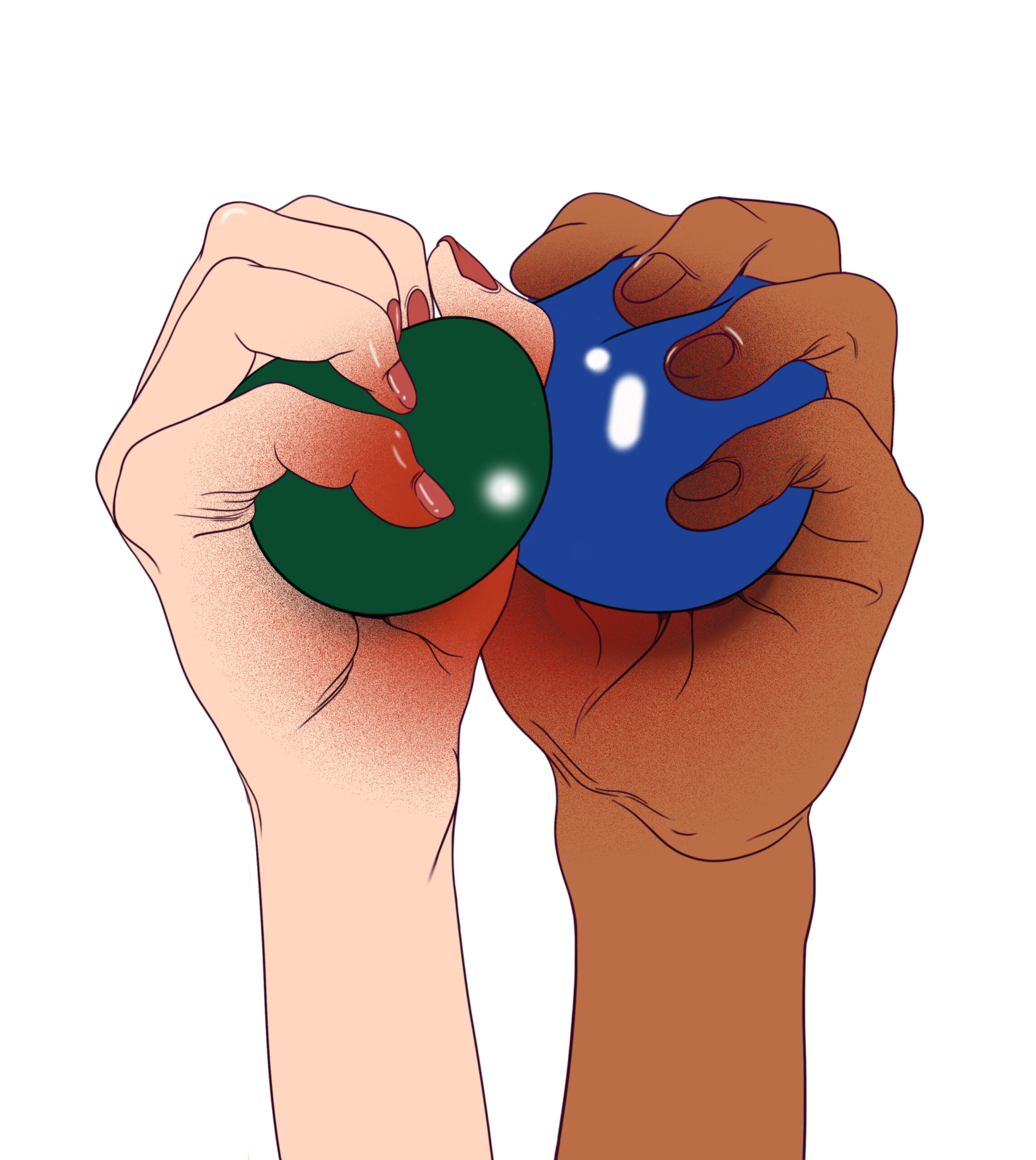While the pop-culture concept of a good relationship tends to be about romance, having a successful partnership is mostly about emotional trust. Navigating difficult experiences together can help you grow your trust and closeness. Here are some examples.
Words Dr Alice Boyes. Illustration Janelle Barone, Makers MGMT
While the pop-culture concept of a good relationship tends to be about romance, having a successful partnership is mostly about emotional trust. Navigating difficult experiences together can help you grow your trust and closeness. Here are some examples.
Take on a challenge together.
There’s a famous experiment in which partners were tied together at the wrists and ankles and had to crawl along a mat and over an obstacle, while pushing a foam cylinder with their heads. If they reached the finish line within a time limit, they won a prize. The task was rigged so everyone narrowly missed winning on their first two tries and succeeded on their third. Couples reported an improvement in their relationship quality after doing the challenge.
In one version, couples completed a structured discussion task after the challenge. They were asked to talk about how they’d each spend $15,000 for home renovations. Partners who had just done the physical challenge were more accepting and supportive, and less negative and hostile during their conversation than those who’d done a boring task before the discussion.
The take-home message is that if you want to improve your relationship, try taking on a challenge with your partner that (a) is interesting and exciting, (b) new to both of you, and (c) requires working together. Your challenge could be as simple as cooking a complicated new dish or creating a vegetable garden.
Emotionally challenging activities can increase closeness.
If you want an armchair version of a challenging activity, try this emotions-focused challenge.
There’s another famous study in which sets of two couples were asked to answer 36 personal questions. The questions started out relatively mild, for example, “What would constitute a perfect day for you?” and progressed towards more intense questions such as “Share with your partner an embarrassing moment in your life”. Couples who completed this challenge reported greater feelings of passionate love.
To replicate this study, you can easily find the questions online. Simply, Google “Art Aron 36 Questions”.
Doing this task with another couple makes this activity more novel and provides additional emotional support (understanding, validation etc) rather than just having a discussion yourselves.
Even areas of tension can bring couples closer.
Successful couples aren’t perfectly responsive to each other all the time. Although large breaches of trust (like affairs) are clearly harmful, we become closer when we find ways to come back together after some type of schism.
To grow from your tension, try these: (A) Acknowledge the valid points your partner makes even when you disagree. For example: you want to homeschool your child and your partner is against it because they don’t think homeschooling is good for social development. Acknowledge socialising is important (leave it at that, no “but” at the end). (B) Communicate anything you like/admire about an aspect of your partner that drives you nuts overall. For example, you’re frustrated they overwork but you admire their stamina. (C) Lastly, try asking your partner’s advice in an area in which you have tension. For example, you argue about you being too messy. Ask their advice about a good way to organise. All these strategies will help your partner feel understood and validated.
Alice Boyes, PhD, is author of The Healthy Mind Toolkit and The Anxiety Toolkit.







